Literary and Sociopolitical Writings of the Black Diaspora in the Nineteenth and Twentieth Centuries
Literary and Sociopolitical Writings of the Black Diaspora in the Nineteenth and Twentieth Centuries
Kersuze Simeon-Jones
Lexington Books
Lanham Boulder New York Toronto Plymouth, UK
Published by Lexington Books
A wholly owned subsidiary of The Rowman & Littlefield Publishing Group, Inc.
4501 Forbes Boulevard, Suite 200, Lanham, Maryland 20706
www.rowman.com
10 Thornbury Road, Plymouth PL6 7PP, United Kingdom
Copyright 2010 by Lexington Books
First paperback edition 2013
All rights reserved . No part of this book may be reproduced in any form or by any electronic or mechanical means, including information storage and retrieval systems, without written permission from the publisher, except by a reviewer who may quote passages in a review.
British Library Cataloguing in Publication Information Available
Library of Congress Cataloging-in-Publication Data
The hardback edition of this book was previously cataloged by the Library of Congress as follows:
Simeon-Jones, Kersuze, 1974-
Literary and sociopolitical writings of the Black diaspora in the nineteenth and twentieth centuries / Kersuze Simeon-Jones.
p. cm.
Includes bibliographical references and index.
1. Black nationalismPhilosophy. 2. Pan-AfricanismPhilosophy. 3. Black nationalismHistory. 4. Pan-AfricanismHistory. 5. African diaspora in literature. I. Title.
DT16.5.S56 2010
320.54 ' 6dc22
2010014360
ISBN: 978-0-7391-2253-2 (cloth : alk. paper)
ISBN: 978-0-7391-8036-5 (pbk. : alk. paper)
ISBN: 978-0-7391-4764-1 (electronic)
 The paper used in this publication meets the minimum requirements of American National Standard for Information SciencesPermanence of Paper for Printed Library Materials, ANSI/NISO Z39.48-1992.
The paper used in this publication meets the minimum requirements of American National Standard for Information SciencesPermanence of Paper for Printed Library Materials, ANSI/NISO Z39.48-1992.
Printed in the United States of America
For My Daughter, With Eternal Love
Contents
Acknowledgments
I thank the S upreme B eing , the Universe, along with the spirits of the Ancestors for infallible guidance through my life journey and intellectual work. I thank the people, past and present (too numerous to name), who have contributed to my continuous personal and professional development. I thank my daughter for helping me better comprehend and appreciate life on earth.
Introduction
Il est des noms qui sonnent comme un manifeste. Tel me fut rvl le nom du Dr. Price-Mars.... Je lus Ainsi parla loncle dun trait, comme leau de la citerne, au soir, aprs une longue tape dans le dsert... Me montrant les trsors de la ngritude quil avait dcouverts sur et dans la terre hatienne, il mapprenait dcouvrir les mmes valeurs, mais vierges et plus fortes sur et dans la terre dAfrique.... Par quoi le 15 octobre 1956 sera le quatre-vingtime anniversaire de la ngritude.
There are names that ring like a revelation. As such I was revealed the name of Dr. Price-Mars.... I read Ainsi parla loncle uninterruptedly, like water from the fountain, at night, after a long journey in the desert... unveiling to me the treasures of ngritude he had discovered on and within Haitian soil, he was teaching me to discover the same values, but purer and stronger, on and within the soil of Africa.... This is the reason October 15, 1956 will be the eightieth anniversary of ngritude.
Lopold Sdar Senghor
I read Hegel, Karl Marx, Lenin and Mazzini. The writings of these men did much to influence me in my revolutionary ideas and activities, and Karl Marx and Lenin particularly impressed me as I felt sure that their philosophy was capable of solving these problems. But I think that of all the literature that I studied, the book that did more than any to fire my enthusiasm was Philosophy and Opinions of Marcus Garvey published in 1923. Garvey with his philosophy of Africa for Africans and his Back to Africa movement did much to inspire the Negroes of America in the 1920s.
Osagyefo Kwame Nkrumah
A s we continue into the twenty-first century, studies on, and the teaching of, the history of the African Diaspora are increasingly gaining momentum and receiving the necessary consideration they have been lacking. Intellectuals and activists hope that through thorough research of a history long-neglected, as well as through the teaching of their findings, they will help ameliorate the state of people of African ancestry throughout the worldpsychologically, educationally, economically, politically, and socially. The purpose of this work is to contribute to the historiography of Afro-Diasporic studies, by tracing and examining the historical development of literary and sociopolitical movements of the Diaspora in the writings of key political figures. Through the scrutiny of the various philosophies that were fundamentally and largely anchored on educationformal, informal, religious, secular, private, and publicthis study analyzes the political, economic and social past of the black Diaspora in relation to the future. In extension, the goal is to encourage interdisciplinary, cross-geographic and cross-lingual pedagogical approaches to black history, literature, and culture. With the comparative and connective analyses of political leaders as well as the movements they adhered to, I argue that throughout the nineteenth and twentieth centuries the principles of Black Nationalismin all its forms, i.e., both avant la lettre and nominalfostered the emergence of the literary and sociopolitical movements of the era. In turn, these movements contributed to the conceptual evolution and functions of Black Nationalism. One of the key elements of Black Nationalism was the advocacy for education; for, as the leaders and scholars viewed it thenas it is still viewed todayeducation was the locus of psychological strength and material advancement. From that framework, the chapters examine the critical role education played in each movement and the importance each leader accorded this fundamental element of nation-building, race-building, self-reclamation, and valorization.
The specific movements examined in the following chapters include Pan-Africanism, Garveyism , Indignisme, New Negro Renaissance, Ngritude and Afrocriollo. The political leaders and scholars associated with these movements include Edward W. Blyden, Martin R. Delany, Ida B. Wells-Barnett, W. E. B. Du Bois, Anna Julia Cooper, Zora Neale Hurston, Marcus Aurelius Garvey, Amy Jacques-Garvey, Jean Price-Mars, Aim Csaire, Paulette Nardal, Jane Nardal, Nicols Guilln, Langston Hughes, Jacques Roumain, Osagyefo Kwame Nkrumah, George Padmore, Patrice Lumumba, and Malcolm X. These figures were among a myriad of activists and scholars who investigated, analyzed, wrote about, spoke of, and taught the history of their ancestors in order to motivate their contemporaries toward self-awareness, social consciousness, conscientious leadership, as well as economic and political development. To this end, this study seeks to demonstrate the cross-ideological effects among the figures listed, and dialogically examine their philosophies, struggles, and achievements. Parenthetically, the figures and movements I have elected to examine in this study neither suggest a hierarchy within the various national liberation movements of the Diaspora, nor does it negate the important sacrifices of countless activistsnot mentioned herewho had been imprisoned and/or died in the name of freedom and black advancement across Africa, the Americas, and Europe. Instead, I view this work as part of the historiography of people of African descent. This text adds to the body of work that has already been published and those that will be published in the future.
Within the context of Afro-diasporic studies, it is reasonable to say that while the leaders and the movements examined in this work have been the subject of much scholarly writing, less attention has been accorded to the correlation between the educational philosophies embedded in the socioliterary movements and the various political dialogues across geographic and generational boundaries. Up to the early 1990s, scholars have tended to focus on literary movements while glossing over the social and political circumstances surrounding these movements or vice versa, or they have limited their analyses of both literary and sociopolitical movements as a result of linguistic barriers and/or geopolitical divisions. Though a number of writers have analyzed the political and literary trajectory of the black Diaspora, less emphasis has been placed on the sociocultural links between literary and sociopolitical movements, and the influential dialogues held between movements and leaders. Building on the existing scholarship this study demonstrates, from a transnational scope, the ideological and activist connections that existed between leaders and various movementssynchronously, diachronically, and cross-geographically. To accomplish this goal, two objectives have been established. The first objective is to examine key ideologies that have served as common threads and connective elements throughout the Diaspora. Particular focus is given to the philosophies of Black Nationalism, Black Internationalism, and Universal Humanism. The goal is to assess the degree to which these philosophies have drawn upon common values such as self-reclamation, self-respect, self-reliance, self-preservation, as well as liberation, and advancement. Further, it is to establish that the principles of Black Nationalism, Black Internationalism, and Universal Humanism were essential to the conceptualization of each literary and sociopolitical movement of the nineteenth and twentieth centuries. The second objective is to examine the temporal and spatial evolution of each social and literary movement. To the extent that each leader and writer helped establish new dimensions to ongoing movements, it is important to examine the conceptual nuances that intellectuals and activists contributed to the sociopolitical struggle, both nationally and diasporically.

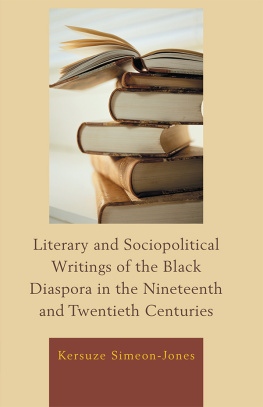

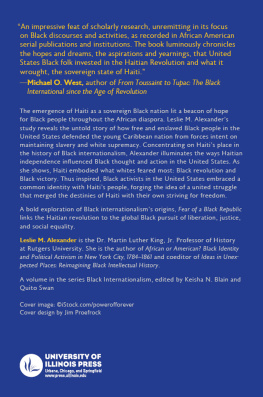
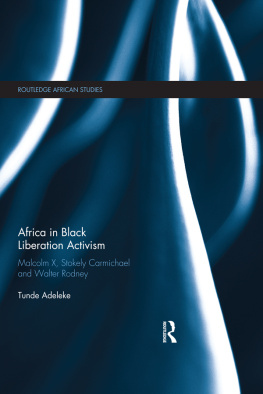
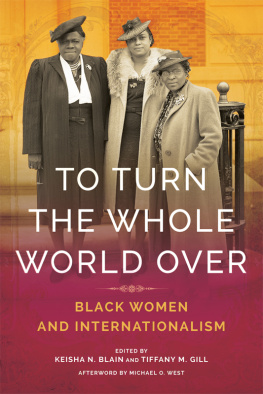
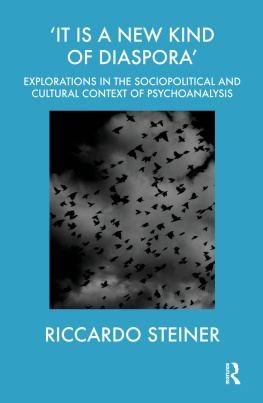

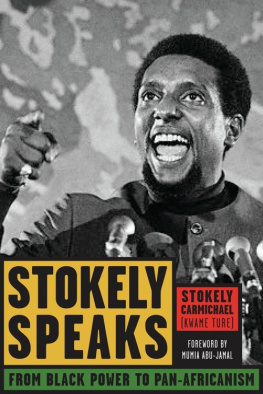
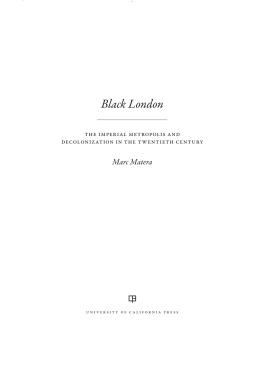
 The paper used in this publication meets the minimum requirements of American National Standard for Information SciencesPermanence of Paper for Printed Library Materials, ANSI/NISO Z39.48-1992.
The paper used in this publication meets the minimum requirements of American National Standard for Information SciencesPermanence of Paper for Printed Library Materials, ANSI/NISO Z39.48-1992.